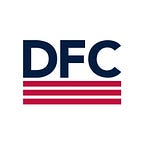Strengthening Africa’s health manufacturing capacity: A conversation with DFC-supported Aspen Pharmacare
When COVID-19 presented a global health emergency more than three years ago, it exposed many significant supply chain vulnerabilities in Africa. Less than one percent of all vaccines administered in Africa are produced on the continent, and essential vaccine supplies were delayed or disrupted by COVID-19-related export limitations from many countries.
DFC responded to the pandemic and provided financing to Aspen Pharmacare, a South African pharmaceutical company, to expand its capacity to produce up to 450 million vaccine doses per year. Today, this expanded capacity is helping Aspen produce a range of vaccines and pharmaceuticals to address other healthcare challenges across the continent, including infectious diseases and the growing burden of noncommunicable diseases. Late last year, Aspen entered a partnership with the Serum Institute of India (SII), with support from the the Bill & Melinda Gates Foundation and the Coalition for Epidemic Preparedness Innovations (CEPI), to expand capacity for other routine vaccines.
The Serum Institute of India is the largest producer of vaccines in the world. Grant funding from the Gates Foundation and CEPI will support a ten-year agreement between Aspen and SII to manufacture four routine childhood vaccines (pneumococcal, rotavirus, polyvalent meningococcal, and hexavalent), while sustaining capacity for response to potential future outbreaks.
Aspen’s Stavros Nicolaou, Group Senior Executive for Strategic Trade Development, spoke with DFC about the lessons of COVID-19, the company’s work to address future health crises, and how DFC is supporting its efforts.
What did the COVID pandemic reveal about overall healthcare resilience and supply chain vulnerabilities in Africa?
Africa has the most disproportionate disease burden in the world and the pandemic shined a strong spotlight on these vast inequalities. I believe the single biggest lesson was that we need to have the local capacities to address local public health challenges. To do that, we need to establish regional manufacturing capabilities.
What are some of the challenges that have so significantly limited this manufacturing capacity and what is needed to increase it?
One big factor is that Africa is a disaggregated and disparate market comprised of 55 countries. Even though the collective population exceeds 1.3 billion, it is difficult for manufacturers to navigate separate trade and regulatory requirements across countries to compete against manufacturers with larger domestic markets. African governments have often favored procuring supplies outside of the continent, usually due to price considerations. Africa also has limited R&D capabilities and must depend on partnerships and technology transfers.
How have those challenges informed Aspen’s strategy?
Over our 25-year history, we’ve had to respond to a variety of public health emergencies. When HIV/AIDS emerged, we were able to form partnerships with major pharmaceutical manufacturers and become the first African company to pioneer generic antivirals, making these lifesaving drugs accessible to the continent. Later, we also formed partnerships to manufacture antimicrobials to respond to MDR TB (multidrug resistant TB).
When COVID-19 appeared, we immediately decided to pivot to produce vaccines, with the support of strong technology transfer partnerships and financing from DFIs. That investment allowed us to expand our capacity and now enter production of routine vaccines, for which there is a dire need. Next, we need to address noncommunicable diseases (NCDs), which are becoming a pandemic in Africa.
What can you tell us about Aspen’s new partnership with Serum and your work with the Gates Foundation and CEPI?
This is a partnership aimed at assisting Africa to increase its own capacities to produce pharmaceuticals and vaccines. There is a commercial aspect of course. Serum sells bulk drug substance to Aspen, and Aspen does the fill and finish drug product manufacturing. But I think with any partnership, there must be a common objective. And that objective is to advance public health in Africa. The U.S. Government, the Gates Foundation and CEPI are very important partners for us in helping ensure that Africa is never again at the end of the queue for essential medical products.
How has DFC helped Aspen respond to COVID and prepare for future health challenges.
We needed financing to expand our capacities, however financing was not the only benefit of our partnership with DFC. Working with DFC helped us connect with other strategic stakeholders across the healthcare ecosystem, ranging from PEPFAR to CEPI. DFC’s investment also helped to build confidence among other partners to support us to continue building our capacity and improve pandemic preparedness and health system resilience.
